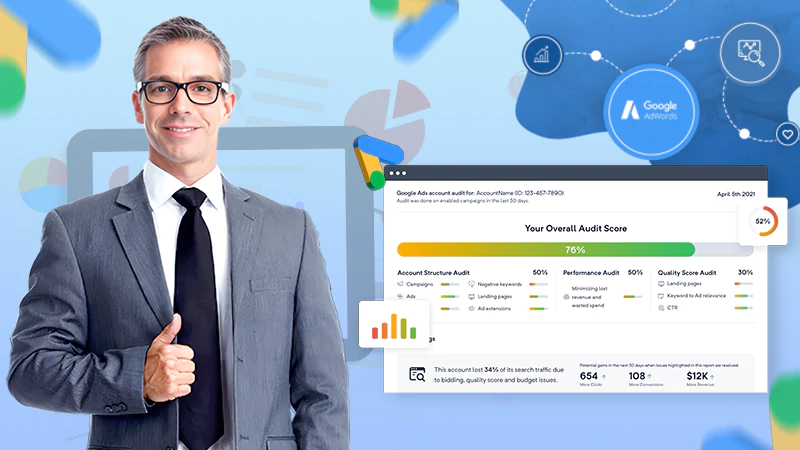Managing Your Global Workforce: Tips for Ensuring Fair and Accurate Payroll
Managing a global workforce comes with its own set of challenges, and one crucial aspect that requires careful attention is income management.
Ensuring fair and accurate payroll across different geographical locations is essential for maintaining employee satisfaction, complying with local labor laws, and fostering a positive work environment. In this blog post, we will explore key strategies and tips for effectively managing your global workforce’s payroll, ranging from understanding local labor laws to leveraging technology for efficient data integration. Let’s delve into the intricacies of global payroll management and discover how to navigate this complex landscape. Along the way, you can use a global payroll services tool, which can streamline your payroll processes and provide centralized control and visibility over your global workforce’s compensation.
Understanding Local Labor Laws and Regulations for Accurate Payroll
Each country has its own unique labor laws and regulations governing payroll. It is imperative to have a deep understanding of these laws to ensure accurate and compliant income processing. Familiarize yourself with employment contracts, tax regulations, minimum wage requirements, and any other relevant legal obligations in each country where you have employees. Collaborating with local legal experts or consultants can provide valuable insights and guidance, helping you navigate complex labor laws and avoid costly penalties or legal complications.
Implementing a Centralized Payroll System for Global Consistency
To achieve global consistency in payroll management, consider implementing a centralized income system. This system should be capable of handling different currencies, tax structures, and regulatory requirements across multiple locations. By centralizing your payroll processes, you can streamline operations, reduce errors, and ensure consistent and accurate income calculations. Moreover, a centralized system enables efficient reporting and data analysis, allowing you to gain valuable insights into your global workforce’s compensation patterns.
Ensuring Fair and Equitable Compensation Across Different Geographical Locations
One of the primary challenges in managing a global workforce is ensuring fair and equitable compensation across different geographical locations. Compensation structures must be carefully designed, considering factors such as local cost of living, market competitiveness, and skill requirements. Conduct thorough market research to understand salary benchmarks in each location and establish compensation ranges that align with industry standards. Regularly review and update these structures to stay competitive and attract and retain top talent globally.
Adapting to Currency Fluctuations and Exchange Rate Considerations
Currency fluctuations can significantly impact global payroll management. Exchange rates can fluctuate daily, affecting the value of salaries, bonuses, and other compensation components. It is essential to stay informed about exchange rate trends and their potential impact on income calculations. Consider using automated currency conversion tools or partnering with financial institutions that specialize in international payroll services to mitigate currency risks and ensure accurate and timely wages to your global workforce.
Maintaining Clear Communication Channels for Payroll-Related Inquiries and Updates
Clear and consistent communication is key to successfully managing income for a global workforce. Establish transparent channels for employees to inquire about payroll-related matters, such as earnings schedules, deductions, or tax obligations. Provide easily accessible resources, such as FAQs or self-service portals, where employees can find answers to common income queries. Regularly update your employees on any changes to payroll processes, tax regulations, or compensation structures. By fostering open lines of communication, you can address concerns promptly and foster trust and transparency within your global workforce.
Conducting Regular Audits to Identify and Rectify Payroll Discrepancies
Regular audits play a vital role in maintaining the accuracy and integrity of your global workforce’s payroll. By conducting thorough reviews of records, tax withholdings, and compliance with local labor laws, you can identify and rectify any discrepancies that may arise. Collaborating with internal or external auditors who specialize in global income management ensures a comprehensive assessment.
During audits, it is crucial to examine amount calculations, including wages, bonuses, and deductions, to ensure they align with the established compensation structures and legal requirements. Additionally, auditors should verify that tax withholdings and contributions are accurate and compliant with local regulations.
If any errors or discrepancies are identified, it is important to rectify them promptly. This involves correcting the affected amount records, addressing any missed charges or overpayments, and ensuring accurate reporting to tax authorities. By maintaining accurate records and promptly resolving payroll-related issues, you demonstrate your commitment to fair and accurate compensation practices.
Providing Comprehensive Training on Payroll Processes and Compliance Requirements
Education and training are vital for ensuring accurate amount management and compliance with local regulations. Provide comprehensive training to your team and relevant stakeholders on amount processes and compliance requirements. This training should cover topics such as local labor laws, tax regulations, income calculations, and reporting obligations specific to each country of operation. By equipping your team with the necessary knowledge and skills, you empower them to navigate the complexities of global amount management effectively. Additionally, consider providing regular refresher courses and staying up-to-date with any changes in labor laws or regulations to ensure ongoing compliance and accurate payroll processing.
Leveraging Technology for Efficient Payroll Management and Data Integration
In the digital age, technology plays a pivotal role in streamlining and enhancing amount management. Invest in a robust payroll management system that integrates with your existing HR and finance systems. Such a system should automate amount calculations, facilitate tax withholdings, generate accurate reports, and provide a centralized platform for data storage and analysis. By leveraging technology, you can reduce manual errors, increase efficiency, and ensure data accuracy and consistency across your global workforce. Additionally, explore cloud-based solutions that offer scalability, accessibility, and security for your income operations.
Collaborating with Local Experts and Consultants for Payroll Compliance
Navigating the intricacies of global amount compliance can be challenging without local expertise. Consider partnering with local experts and consultants who have in-depth knowledge of the labor laws, tax regulations, and cultural nuances of each country where you operate. These experts can provide valuable guidance on compliance requirements, help you interpret complex regulations, and assist in implementing best practices tailored to each location. Their expertise will ensure that your income processes align with local laws and regulations, mitigating the risk of non-compliance and maintaining a harmonious employer-employee relationship.
Conclusion
Managing a global workforce’s amount effectively is a multifaceted task that requires a deep understanding of local labor laws, fair compensation practices, and technological advancements. By comprehensively understanding and adhering to local labor laws, you can ensure accurate and compliant payroll processing. Implementing a centralized income system fosters consistency and efficiency across different geographical locations. It is crucial to maintain fair and equitable compensation structures while considering currency fluctuations and exchange rate considerations. Clear communication channels, regular audits, and comprehensive training are essential for minimizing amount discrepancies and fostering transparency. Leveraging technology enhances amount management efficiency, and collaborating with local experts ensures compliance with regulations.
By implementing these strategies and tips, you can navigate the complex landscape of global income management with confidence. Prioritizing fair and accurate income practices not only promotes employee satisfaction and engagement but also ensures legal compliance and fosters a harmonious work environment. With a well-managed amount system in place, you can focus on developing your global workforce, driving business growth, and achieving your organizational objectives in a rapidly evolving global marketplace.
The Challenges and Benefits of Removing Negative Online…
Unlock the Simplest Way to Access LaSRS Login…
Strategic Wins: How SafeOpt Can Boost Your Online…
5 Reasons Why Marketing Matters in Business?
Google Ads: What Are the Basic Checklists to…
The Crucial Role of Press Releases in a…
8 Best Tech Tips to Implement for Better…
Fax Machines in the Digital Age: A Sustainable…
Breaking Barriers: The Power of Business Translation Services
Why Do Businesses Need a Dedicated Mobile App?
The Role of Onboarding in Improving Employee Retention…
3 Major Benefits of Onsite IT Support












